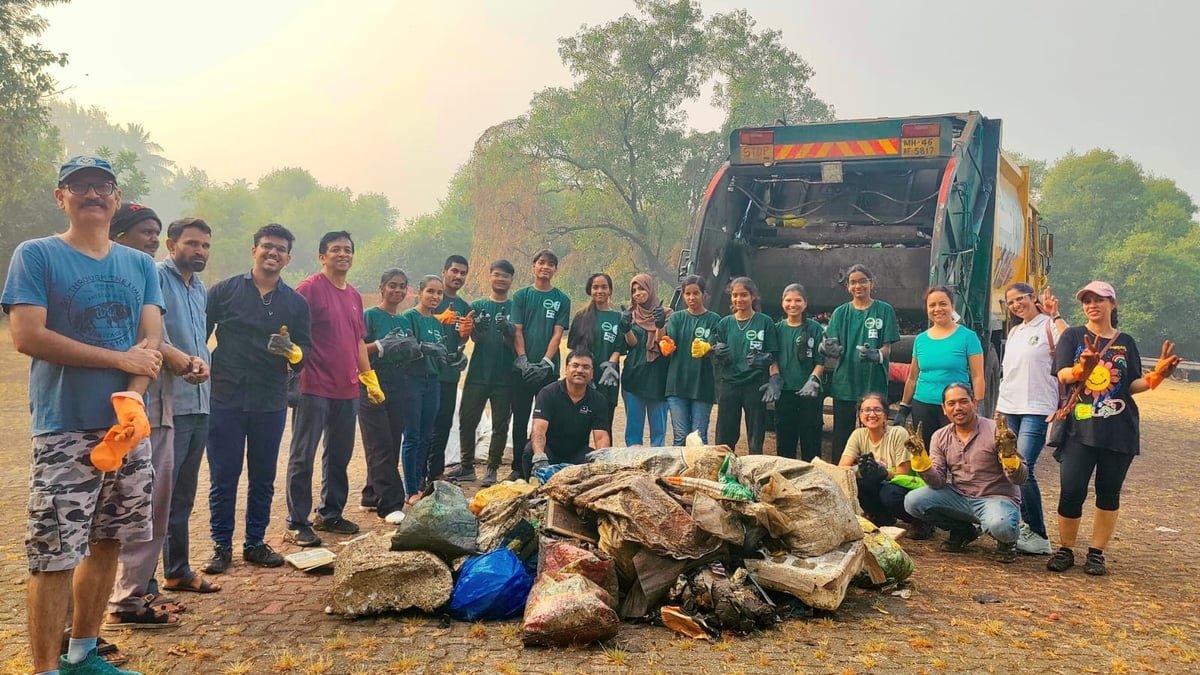Total of 188 weeks of cleaning the mangroves lined around Vashi mini seashore and the Sagar Vihar , the volunteers who toil on ground on Sundays identify that the issue of waste menace is no longer affecting only the mangroves but also the marine ecosystem which eventually finds its way into the food chain system.
The initiative that began from 2016 onwards with a handful of like minded citizens residing in Vashi, has now become a social activity undertaken as volunteer work intended to conserve and preserve the mangrove belt. The activity now has regular participation from the corporate sector.
“Back in the year 2016 the sight of mangroves filled with plastic and other waste prompted us to take up the challenge of cleaning the stretch. We were 5 odd individuals determined to keep the area clean, however over the years the activity has now become a huge network of volunteers using their holidays for the sake of the environment,” said the founder of the initiative and resident of Rohini CHS, sector 9 A, Rohit Malhotra.
While the issue of waste getting thrown into the creeks continues unabated the group has now branched out its activities to advocacy. The group now comprising 25 odd individuals terms the issue of waste cannot be addressed only by the government or through such weekly cleanliness drives alone; instead the issue needs to be made personal. ” Unless and until the public realizes that the issue can affect them personally the change in mindset wouldn’t happen. Therefore, through advocacy especially with young children the awareness and the seriousness of the issue is being addressed on a social level,” said the activist.
The activists recounted the norms emulated by the government to address the issue. In 2013 the government mandated that plastic waste should be made joint responsibility of the users. ” The process was termed as extended producer responsibility wherein for every quantity of plastic or any products that can be recycled being procured the same amount of the same product is to be sourced from the market to get it recycled. Strict adherence of the norms would have ensured that waste segregation happens at source and eventually waste was to become an asset to be monetized,” said Malhotra.
In stark contrast, the activist recounts the quantity of waste accumulating in the creeks to be only increasing. “The water in the mini-seashore is attached to the Thane creek which is approximately 70 kms long and of this we are cleaning a very small portion, maybe 500 ft of area and yet have managed to retrieve not just plastic waste, in fact we have removed a sofa and even a fridge. The problem with the waste retrieved from the mangroves is that it cannot be recycled as these are contaminated and to be able to recycle it will require expensive mechanisms to clean instead these are simply burnt. Citizens ought to own up and try their bit to reduce waste generation,” concludes the activist.




